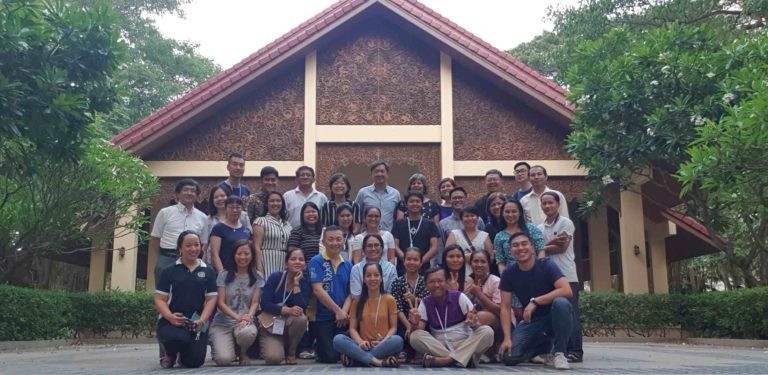To celebrate its 20th anniversary, the Ricci Institutes of Macau and Taipei, and the University of St Joseph Macau hosted a remarkable two-day symposium in Macau titled, “In Actione Comtemplativus – Contemplation, Mission and Martyrdom” from October 17 to 18.
It was a remarkable gathering of people and presentations. To mention only a few points of greatness: the topics, discussions and the personal sharing among participants combined to create a community of trust where group and personal reflections on apostolic mission were shared and reverenced. Through the depth of the presentations and the sharing they triggered, we were invited to go deeper in locating our personal sense of mission and Christ’s presence within; how the faith of the community anchors our sense of hope in a deeply troubled world; and how the lives of martyrs could offer inspiration and rekindle our commitment to a faith that does justice.
When I first learned of the title of the symposium – Contemplation, Mission and Martyrdom – I wondered how martyrs would be integrated into the well-established Jesuit dynamic of contemplation-in-action. Mid-morning through the first plenary session, I had my answer in Gerhard K Becker’s presentation, “Spiritual leadership in hard times: Karl Rahner and Alfred Delp”. Prof Becker led us through the life, ministry, capture, trial and martyrdom of Jesuit Fr Alfred Delp by the Nazis. Through Fr Delp’s memoirs and letter, he teased out the inner struggles of a man dedicated to justice by speaking the truth to power during a time when Germany was encompassed by hateful tyrannical leadership. Through a glimpse into Fr Delp’s ability to stand up to accusations of state betrayal and strengthened by his contemplative Christian commitment, we could look at ourselves, our past, our motivations and to think about how we affect the people around us. We were encouraged to look more deeply into the sources of our own faith and hope.
Prof Becker noted that Jesuit theologian Fr Karl Rahner was a contemporary and friend of Alfred Delp. In Rahner’s reflections on martyrdom and Christian commitment, he referred to Delp’s life and character, and points out his mystical view of God’s action in the world. Rahner was on to something of importance when he wrote in the 1960s, “The Christian of the future will be a mystic or will not exist at all”. We recognise that that future is now.
Then came Dennis McCann on the martyred Dietrich Bonhoeffer’s struggles with the Christian commitment to peace and the violent over through of Hitler, and Joseph Lee Tse-Hei on the Chinese Christian martyr Watchman Nee. These presentations, too, invited us to reflect on the motivations behind these Christian martyrs – often conflicted and unclear even to themselves – and to see what their struggles and ultimate sacrifice mean to us today.
Between the plenary sessions were many smaller group sessions of varied topics touching on contemplation, martyrdom, prayer, discernment and decision making, obedience, community building, etc. I regretted I could not attend them all.
It is impossible to write of all the excellent sessions, large and small, over the two days. I feel it important to share something of the presentation by Jesuit Fr Martin Maier, working in Brussels at the Jesuit European Social Center. Fr Maier, during an extended period of research, lived with the six Jesuits and their cook and her daughter, who would be martyred because of their commitment to a life dedicated to seeking a just solution to the long civil war in El Salvador. He spoke tenderly of his friendship with these men, their intelligence and contemplative spirit. He spoke of the meals their murdered cook had prepared for him. Similarly, Jesuit Fr Paul John Wang, a Chinese graduate student in leadership at Gonzaga University in Washington State, USA, reflected on the Salvadorian Martyrs. He highlighted their contemplation of the signs of the times in El Salvador and how their total dedication to their mission of justice led to their martyrdom.
At the symposium’s final review, we recognised that we enjoyed the formation of a holy space that nurtured us in a community of learning, reflection and prayer. Someone commented, “What Rahner said, that Christians of the future would need to live as mystics, is what happened for us here. We leave this symposium knowing that the Holy Spirit has hovered over us.”
Fr Julio Giulietti SJ is a Fellow at the Georgetown University Berkley Center for Religion, Peace and World Affairs, and living in Vietnam for 10 years.

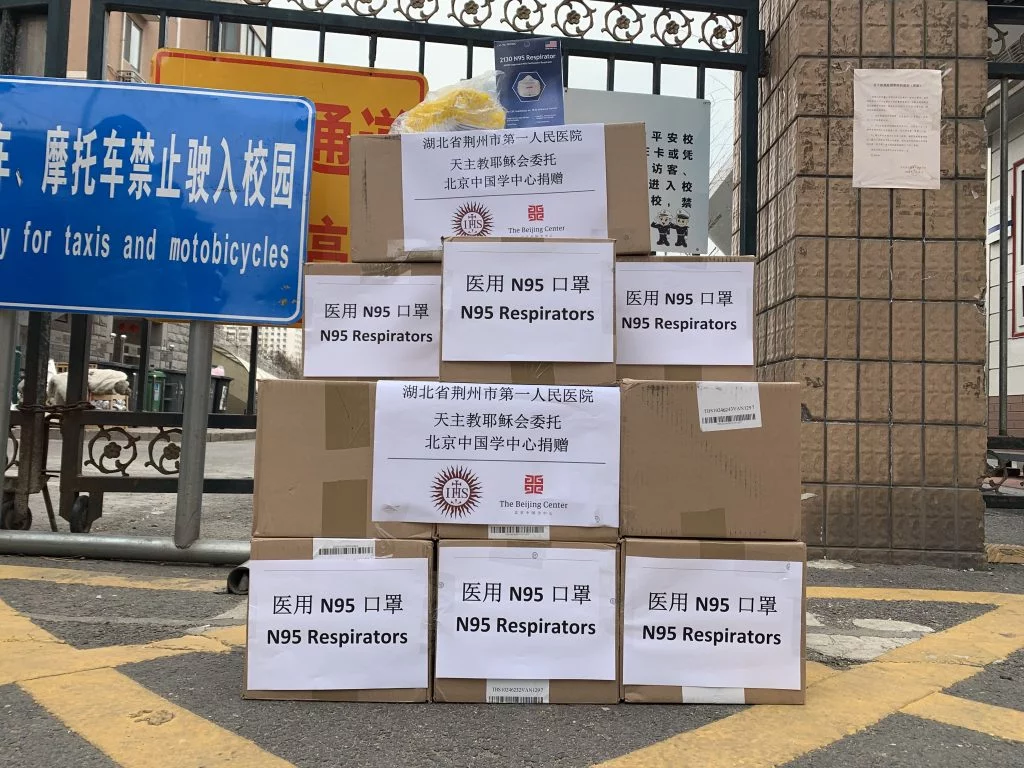
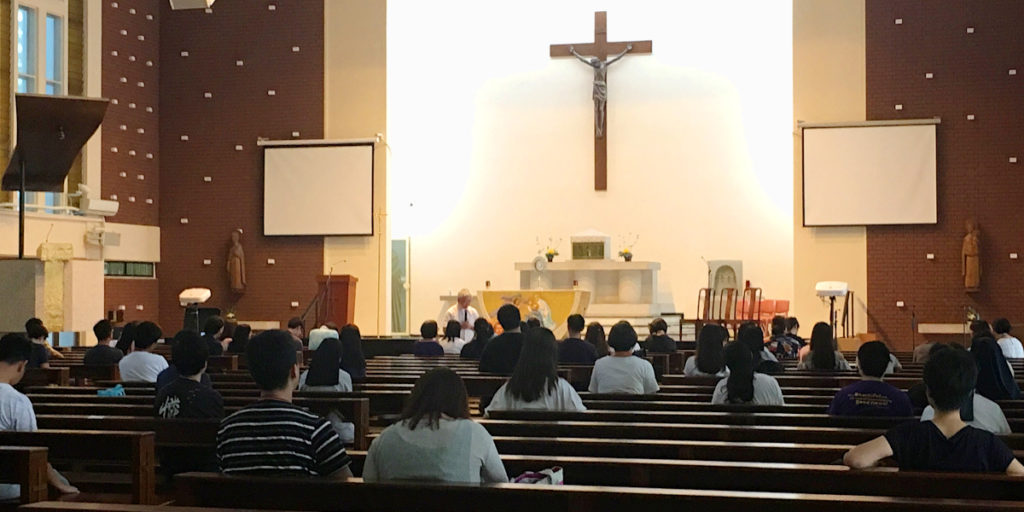
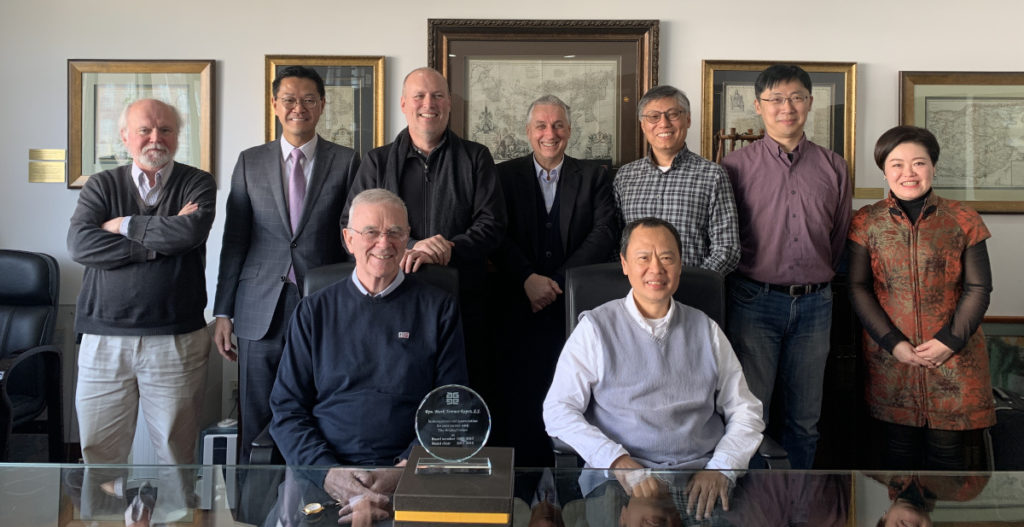
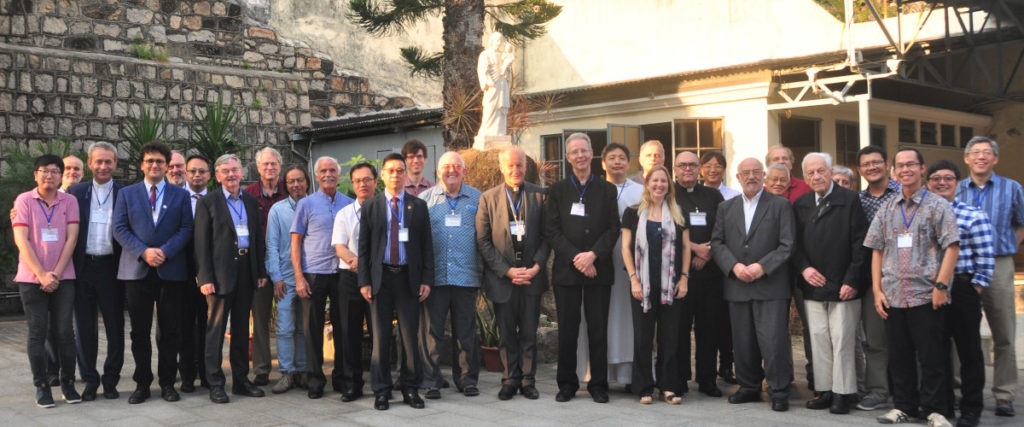
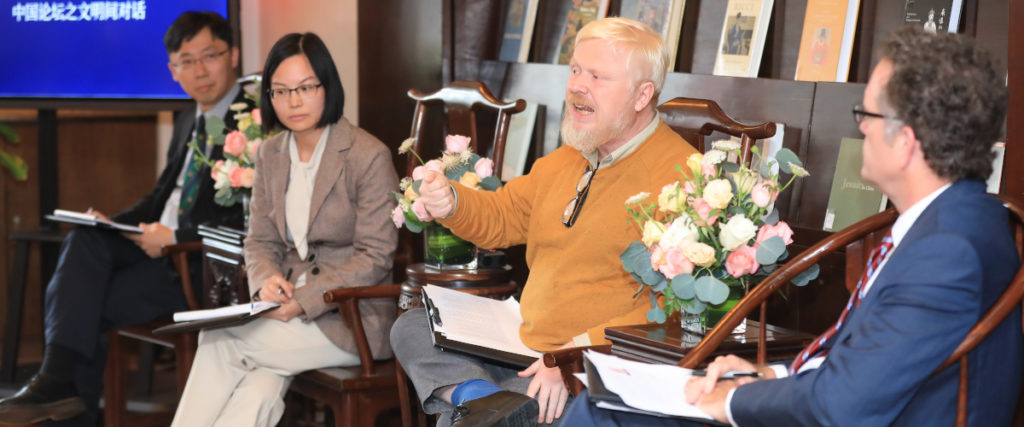
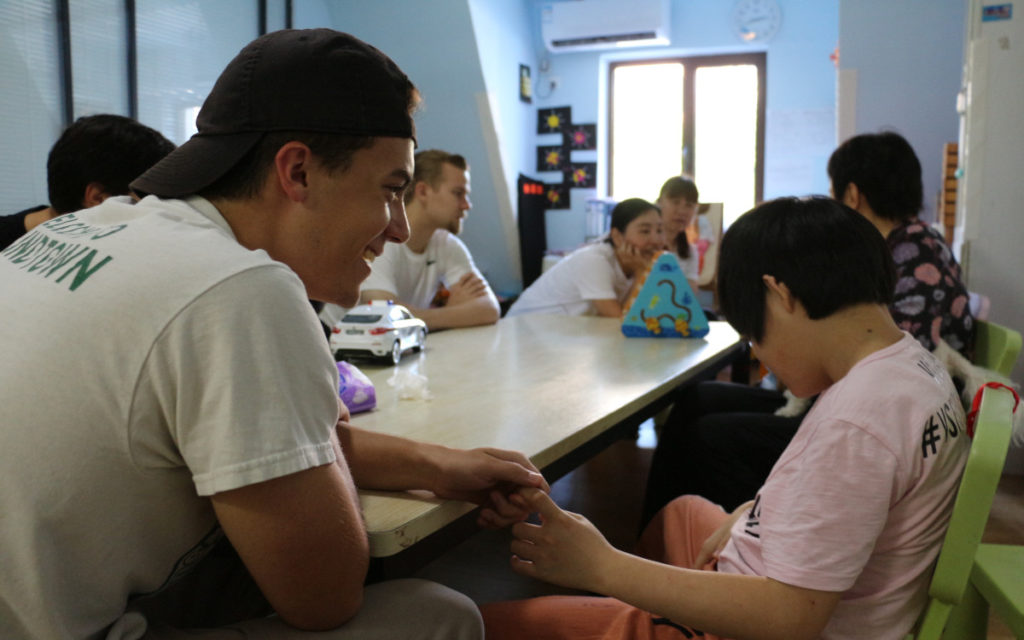
 Since TBC’s founding in 1998, students in the study abroad programme participate in service learning activities each semester in Beijing. As persons for others, they’ve volunteered with disadvantaged youth, worked as English tutors and helped renovate classrooms in the Beijing suburbs.
Since TBC’s founding in 1998, students in the study abroad programme participate in service learning activities each semester in Beijing. As persons for others, they’ve volunteered with disadvantaged youth, worked as English tutors and helped renovate classrooms in the Beijing suburbs.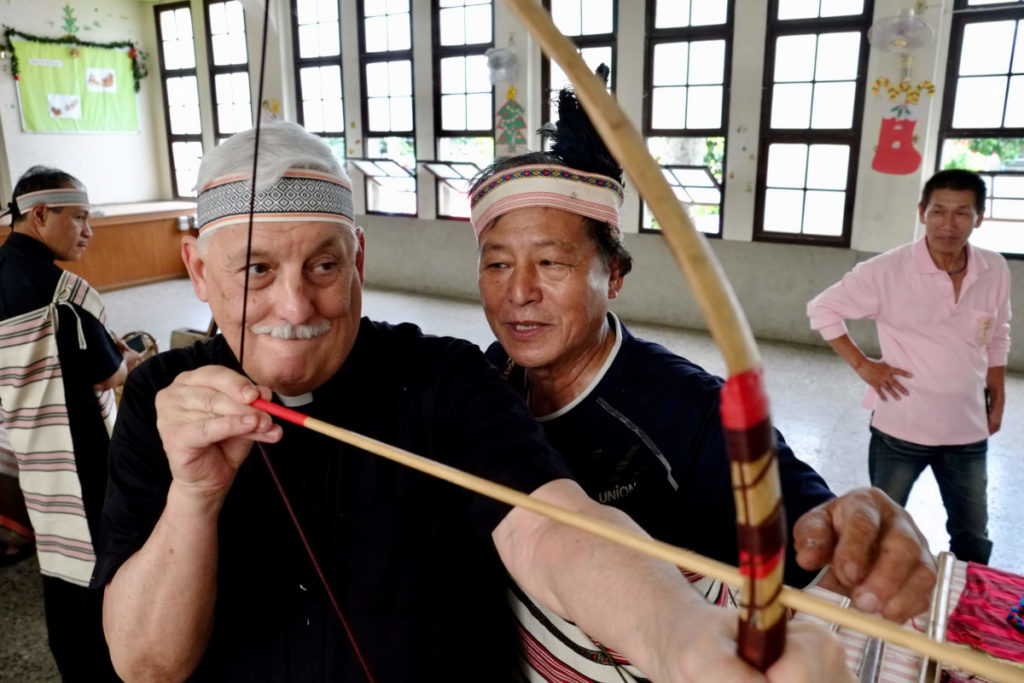
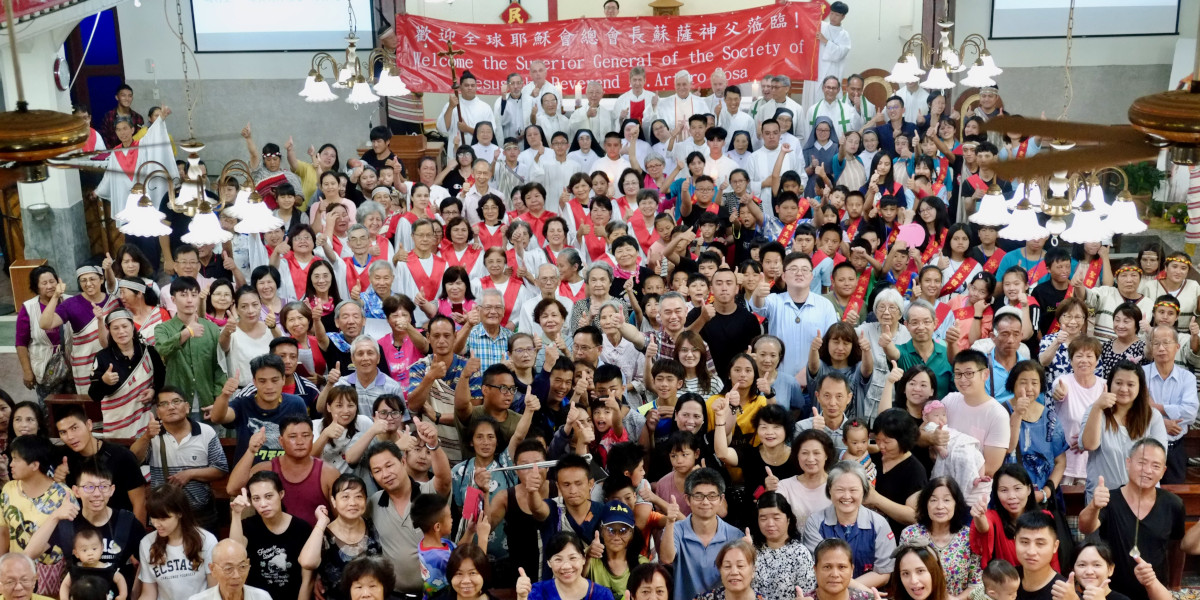 “Choosing life in a context filled with fear and anger and insecurity seems like a daunting task. But it is not impossible – not for followers of Christ.” This was Fr General Arturo Sosa’s message in his homily for the advance celebration of the Feast of St Ignatius in Taipei.
“Choosing life in a context filled with fear and anger and insecurity seems like a daunting task. But it is not impossible – not for followers of Christ.” This was Fr General Arturo Sosa’s message in his homily for the advance celebration of the Feast of St Ignatius in Taipei.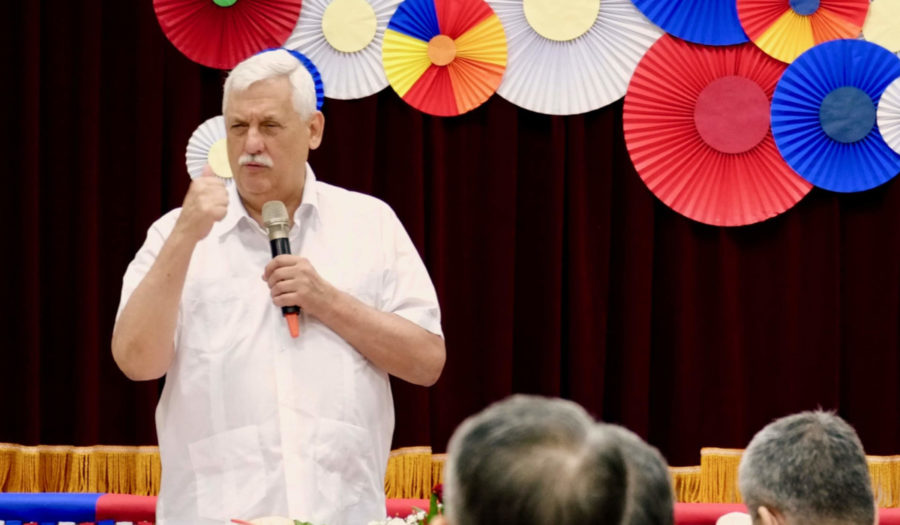 The Superior General was able to see how this courageous faith is being lived out in the social apostolates of the Jesuits in Taiwan. On his first day in Taipei he went to the Rerum Novarum Social Service Center founded by Fr José Ellacuría SJ in 1971. Over the years as society has changed, Rerum Novarum’s services have expanded from low-paid, overworked labourers to migrant workers in Taiwan and migrant workers on fishing boats subject to unequal treatment. The centre manifests the Gospel in action. Fr Sosa showed particular concern for the migrant fishermen.
The Superior General was able to see how this courageous faith is being lived out in the social apostolates of the Jesuits in Taiwan. On his first day in Taipei he went to the Rerum Novarum Social Service Center founded by Fr José Ellacuría SJ in 1971. Over the years as society has changed, Rerum Novarum’s services have expanded from low-paid, overworked labourers to migrant workers in Taiwan and migrant workers on fishing boats subject to unequal treatment. The centre manifests the Gospel in action. Fr Sosa showed particular concern for the migrant fishermen.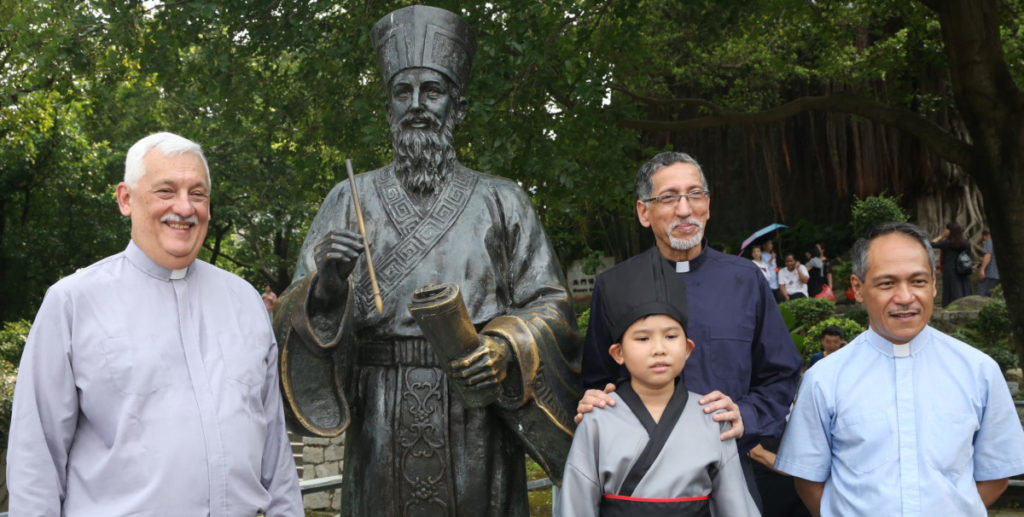
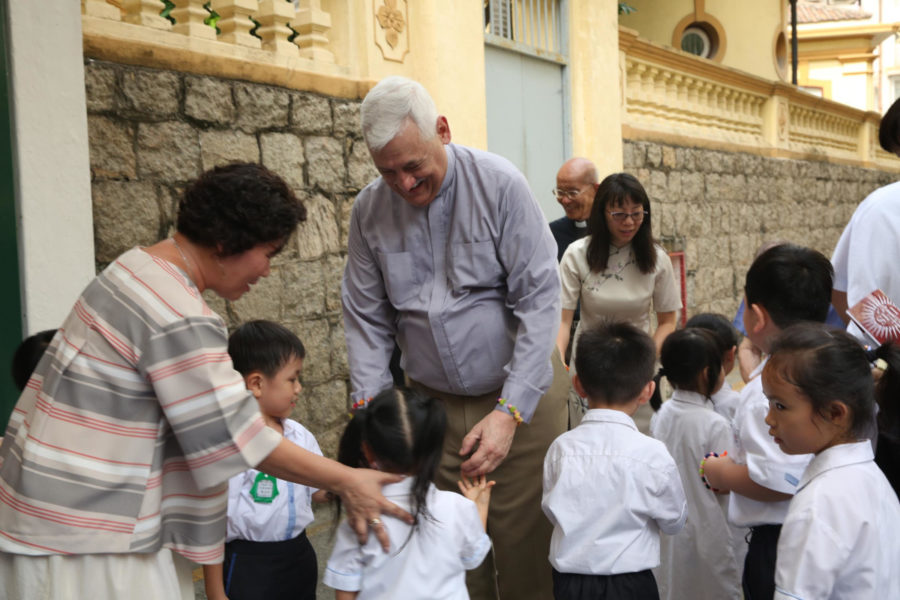 Fr General also met and greeted the staff of Casa Ricci Social Services and Macau Ricci Institute. He also had an opportunity to meet the Jesuit community in Macau. The short trip was closed by the Thanksgiving Mass for 70 years in the Society of Jesus of Fr Yves Camus SJ and 50 years in the Society of Fr Luis Sequeira SJ and Gregory Koay SJ.
Fr General also met and greeted the staff of Casa Ricci Social Services and Macau Ricci Institute. He also had an opportunity to meet the Jesuit community in Macau. The short trip was closed by the Thanksgiving Mass for 70 years in the Society of Jesus of Fr Yves Camus SJ and 50 years in the Society of Fr Luis Sequeira SJ and Gregory Koay SJ.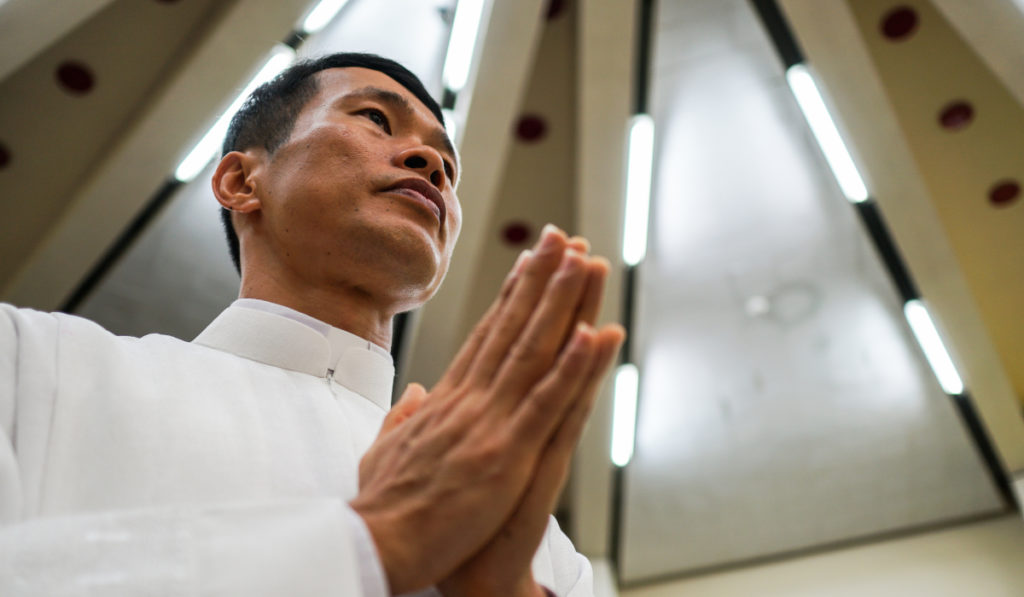
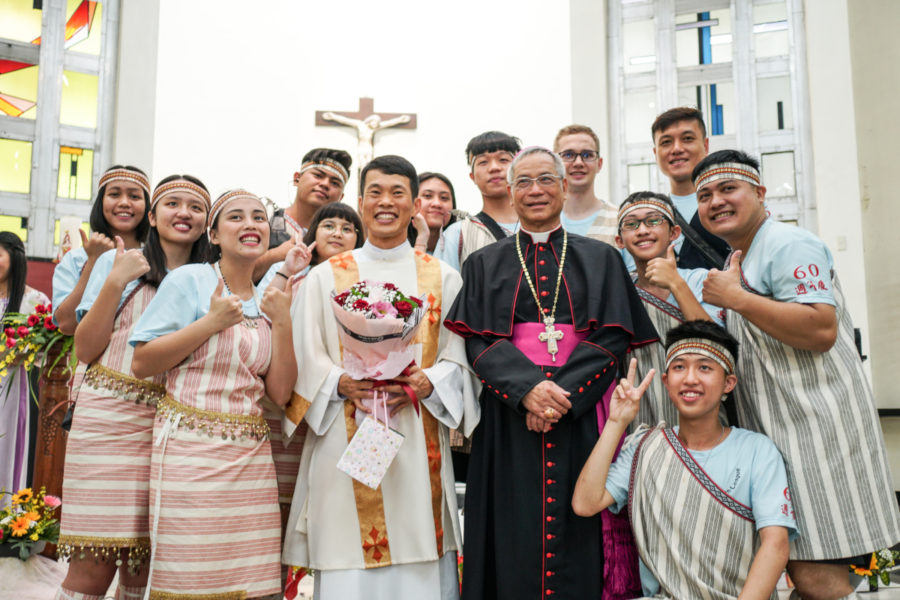 Family, friends and members of religious communities gathered on the bright morning of June 8 to witness the diaconate ordination of Joseph Dang Do Nhan SJ by Most Rev John B Shan-Chuan Hung SVD, Archbishop of Taipei. The Mass was held at St Robert Bellarmine Chapel of Fu Jen Faculty of Theology of St Robert Bellarmine, New Taipei City.
Family, friends and members of religious communities gathered on the bright morning of June 8 to witness the diaconate ordination of Joseph Dang Do Nhan SJ by Most Rev John B Shan-Chuan Hung SVD, Archbishop of Taipei. The Mass was held at St Robert Bellarmine Chapel of Fu Jen Faculty of Theology of St Robert Bellarmine, New Taipei City.